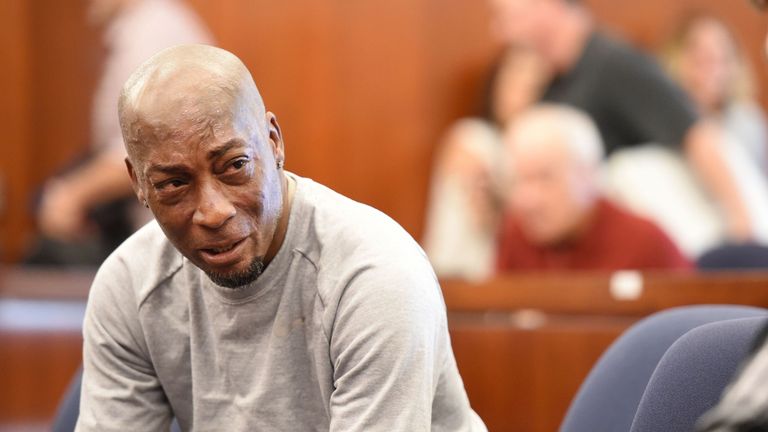Californian man awarded £80m over cancer-causing weed killer
A jury has awarded $80m (£60.7m) to a man who claimed his use of a weed killer caused his cancer.
Edwin Hardeman blamed Bayer AG’s glyphosate-based weed killer Roundup for his non-Hodgkin’s lymphoma, the first of thousands of similar lawsuits the company faces.
Mr Hardeman, 70, told the court he used Roundup for years to deal with weeds and overgrowth at his home in San Francisco.
The jury in San Francisco federal court awarded him $5m in compensatory damages and $75m in punitive damages.
They found that Monsanto, which made Roundup and was sold to Bayer last year for $63bn (£47bn), had been negligent and failed to warn users about the cancer risk.
After the verdict, Mr Hardeman said he was “overwhelmed”, adding: “It hasn’t sunk in yet.”
Bayer said it was disappointed with the verdict and would appeal.
A spokesman said: “This verdict does not change the weight of over four decades of extensive science and the conclusions of regulators worldwide that support the safety of our glyphosate-based herbicides and that they are not carcinogenic.”
On 19 March, after more than four days of deliberation, a jury of six people found Roundup was a “substantial factor” in causing Mr Hardeman’s cancer, news that sent Bayer’s share price down by more than 12%.
A second trial was held before the same jury to determine liability and damages.
During this phase, Mr Hardeman’s lawyers presented internal documents they said showed the company’s efforts to influence scientists and regulators on the subject of safety.
After the verdict, one of his lawyers Jennifer Moore said: “Today, the jury sent a message loud and clear that companies should no longer put products on the market for anyone to buy without being truthful, without testing their product and without warning if it causes cancer.”
There are more than 11,200 Roundup lawsuits approaching trial in the US but Bayer said Mr Hardeman’s case would have no influence, as “each one has its own factual and legal circumstances”.
Mr Hardeman’s case was the second of its type – the first saw another California man Dewayne Johnson awarded $289m (£219) in August after a jury blamed Roundup for his cancer.
The amount was later reduced to $78m (£59) and is in the process of being appealed.
Experts are divided on whether glyphosate, which was developed by Monsanto in the 1970s, causes cancer.
The US Environmental Protection Agency says it is not likely carcinogenic to humans and in 2017 EU member states narrowly voted to approve its use for another five years.
Glyphosphate is the most common herbicide used in the EU and worldwide, according to EU figures, but the World Health Organization’s cancer branch said in 2015 that it is “probably carcinogenic to humans”.
Source: Read Full Article




